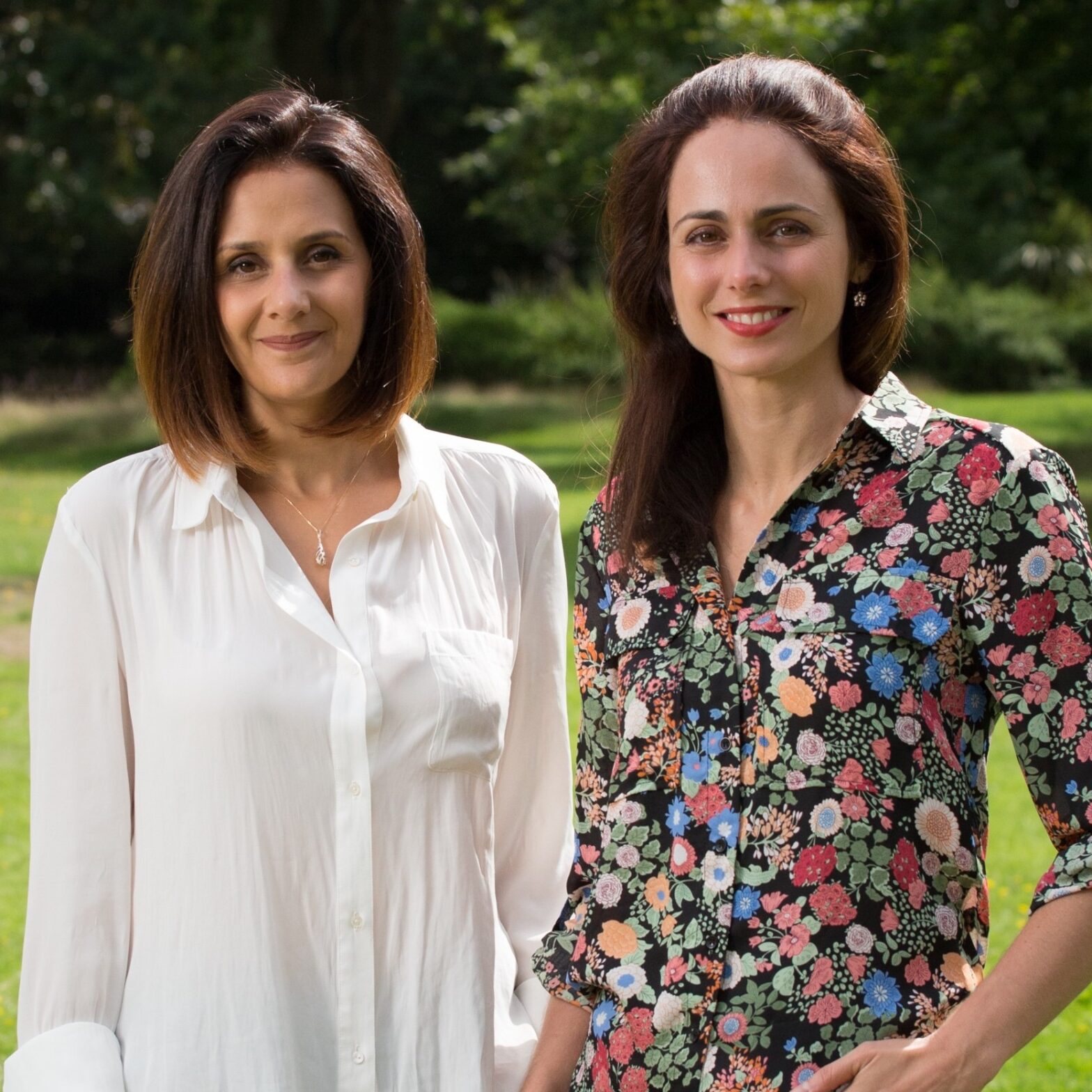Many more of us have been shopping online this year, but parents will likely have extra concerns when it’s their children filling the basket.
Inspired by her teenage daughter, Randa Bennett teamed up with Patricia Salume to launch VeeLoop. The online service lets teens put items in a virtual basket which their parents/guardians approve and checkout. This means that teens can shop without giving out their personal details and leaving themselves vulnerable to cybercrime. It’s also a good shout for teens without payment cards.
But as business was picking up, COVID-19 hit. In early lockdown, Randa and Patricia volunteered to do their neighbours’ shopping for them. When they registered, it wasn’t obvious that this would be the source of their next big idea – and another arm to their business.
We caught up with the entrepreneurial pair to find out more about their multi-faceted company and how The Start-Up Series and Worth Capital have been essential for its development.
Tell us more about VeeLoop and how the business came about.
Randa: I have a 17-year-old daughter and since she was 13, she’s been constantly shopping online and following me around with a laptop in my face saying, “Can you pay for this?” I’m in technology and I thought that she could send me her online basket and I can review it.
I started looking into it and found that this is actually a common problem. Kids don’t always have a way to pay [for items online] and parents don’t want them to pay. The more research we’ve done, the more we found that the need is there, so Patricia and I teamed up and we started the business.
How was your experience of The Start-Up Series competition?
Patricia: I think the process was quite good because the application was straightforward. It worked in three stages – the first was a short application and if the judges like your business idea, they invite you to complete a longer version, and then finalists are selected for a deep dive. In terms of respecting your time, that was very good.
I think the fact that the application online opens it up to anyone who has a business. It doesn’t have to be based on introductions and ‘who you know’. It allows you, wherever you are in the country, to showcase your business idea and what you’ve done.
Randa: To follow up on Patricia’s point, it’s very frustrating from a founder’s perspective when you approach investors and they say that it’s ‘introductions only’. It limits business owners from that clique of people. If you don’t have a mention, you’re basically not worthy.
We really suffered from that, so it was nice in the sense that The Start-Up Series was very inclusive. But what we also really liked about it was that the founders of Worth Capital themselves review every application. We’ve had a lot of applications put in for other organisations where they get a very inexperienced person who just sees the world from their perspective. They go, ‘Reject, reject.’ I end up meeting senior people in that organisation and they say, “Oh, why haven’t you applied to us? Come in and speak to me” and I say, “Well, I’ve applied but your filter rejected us.”
>See also: What winning The Start-Up Series meant for me – Phil Daneshyar, Kanda
I also think having a sounding board is good for us. Patricia and I are very experienced – we each have about 22 years of experience. We are so into the business and so passionate and so in love with it, sometimes we don’t see what’s good and what’s not so good. Sometimes the lines get merged.
Having Matthew from Worth Capital sitting on our board as a director and mentor, we are able to pick up the phone and ask, “Matt, what do you think of this?” I think that’s beneficial and again, when we’re overwhelmed, we’ll have sessions where we break things down and prioritise, so that’s useful.
Patricia: It’s an unbiased view as well because they’re not in the business every day doing the menial tasks. They have a very different perspective coming from outside and also from seeing other businesses. They come across so many businesses and have so much experience that they can bring a different perspective to us.
How has COVID-19 affected the business?
Randa: Since our first investment, we managed to grow the number of users, the number of families and the number of retailers in the business but unfortunately, we were impacted this year. The service we’re offering is a really ‘nice to have’ for retailers & customers.
On a positive note, we did find something else to do. We put our experience and knowledge of payment to use and created another product during lockdown: vHelp.
It’s a payment service for vulnerable people, reimbursing volunteers for shopping. The first week of lockdown, Patricia and I signed up to be volunteers. I knocked on my neighbour’s door and said, “Can I help you?” I went and did the shopping for them. I came back, gave them the shopping and the payment process was awkward. She gave me cash, put it in a bag and put it outside and I didn’t have change. Every time we do that it’s problematic. A lot of people were running out of cash and popping to a cashpoint at silly hours to avoid being around people.
Patricia and I ran vHelp past our investors and that’s what we love about them – they’re very proactive and receptive to ideas. We got the blessing and built an app in a couple of months and now we’re offering it to voluntary groups across the country. We’ve got a few onboarding and starting to use it, so it’s been exciting. We also won a government grant which will help us grow quickly.
We consciously decided to keep vHelp under the VeeLoop umbrella and not start another company. We were really worried about our investors because we have such a good relationship with them, and we wanted to increase value for this company and hopefully reward our investors.
What are your priorities post-COVID-19?
Randa: The product that we’ve built basically allows the volunteer to shop for the vulnerable person so they can take a picture of the receipt with their phone and their payment will be initiated in the back end, the vulnerable person’s card will be debited and the volunteer will be reimbursed.
That could also work very well for carers – and local authorities are telling us that. A son or daughter away from the person being cared for can pay for shopping. We’re still maintaining VeeLoop, but we want the retailers to recover from redundancies and come out of [COVID-19] a little bit and then we’ll start pushing it again.
> See also: What winning The Start-Up Series meant for me – Zaffrin O’Sullivan, Five Dot Botanics
Coming back to The Start-Up Series, what would you say to someone who is looking to apply?
Randa: They should definitely apply for it, especially if they’re EIS/SEIS eligible.
Patricia: It’s going to be purely based on the business proposition and you as a founder because those are the main things that they look at. Even if you don’t win, Worth Capital still give you feedback. So, the worst-case scenario is that you get some good and impartial feedback. The best- case scenario is that you get the investment and the support!
Randa: I think it’s also worth mentioning that it’s really good for women founders. We looked at the stats they produced, and it was reassuring for me and Patricia.
There’s something we normally do before we go to investors: we look at their portfolio. You’d be surprised to know that a lot of companies have just one type of founder – a certain demographic, a certain ethnicity, a certain age – across the board. And we thought we’d beat the stigma and apply anyway, but actually we found we don’t go anywhere with these places. It’s reassuring that Worth Capital don’t look at your gender. They end up investing quite equally between men and women.
Read more
The Start-Up Series competition is back — a chance to secure £250,000 in equity funding





